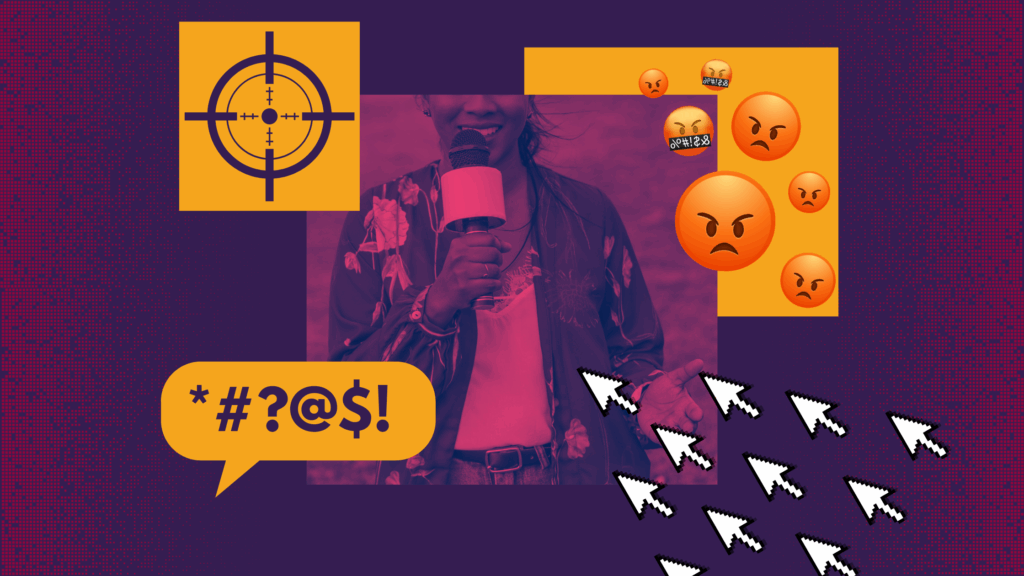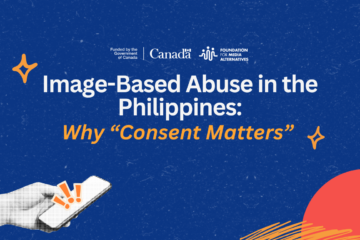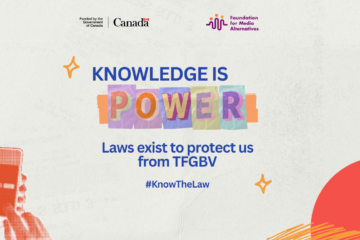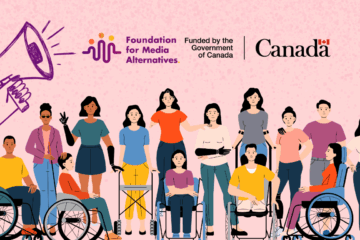Chilling Effect: Cases of Tech-Facilitated Gender-Based Violence Against Filipino Women Journalists

Press freedom is a cornerstone of democracy, ensuring that journalists can report truthfully and hold power to account without fear of censorship or retaliation. In the Philippines, press freedom remains a critical issue, one increasingly under threat not only by direct intimidation but also through digital means.
Filipino women journalists face unique and disproportionate challenges in this landscape. Despite their essential role in media, they are frequently targeted by technology-facilitated gender-based violence (TFGBV), including online harassment, doxxing, threats, and the spread of false information. These gendered attacks are designed to silence, discredit, and intimidate them, exploiting deep-rooted biases to suppress women’s voices in public discourse.
Notable Cases of TFGBV Against Filipino Women Journalists
Several recent incidents underscore the persistent threats to both press freedom and gender equality in the Philippines:
- Joann Manabat and Rowena Quejada – March 2024
While covering a violent demolition in Angeles City, Pampanga, Rappler reporter Joann Manabat and K5 News FM anchor Rowena Quejada were subjected to severe threats and intimidation. Armed individuals threatened to shoot Manabat for filming the incident, while Quejada had her belongings confiscated by members of the demolition team. The Commission on Human Rights launched an investigation into the harassment. - Raissa Robles – 2023
Veteran journalist Raissa Robles was targeted by former senatorial candidate and presidential advisor Larry Gadon, who distributed a video containing misogynistic and sexually explicit remarks about her. The video circulated on social media, sparking outrage. The Supreme Court permanently disbarred Gadon for his actions, an important legal precedent in addressing gender-based abuse. - Mariz Umali – March 2025
GMA News reporter Mariz Umali faced online harassment after a viral video misinterpreted her comment about former Executive Secretary Salvador Medialdea. A vlogger subtitled her voice as saying “matanda” (old), but Umali clarified that she actually said “mata niya” (his eyes). She emphasized there was no disrespect intended and she was misheard. The International Association of Women in Radio and Television‑Philippines (IAWRT), alongside the National Union of Journalists of the Philippines (NUJP), condemned the attacks and harmful remarks, particularly a vulgar comment by broadcaster Ramon Tulfo, urging recognition that harassment is not criticism. - Anna Perez-Gallardo – 2024
Annie Perez‑Gallardo, a Cebu journalist, reported an impersonation incident in December 2024, where a fake Telegram account used her photo to harass or scam others. She filed a complaint with the NBI-7. - Bernadette Reyes – 2025
GMA Integrated News reporter Bernadette Reyes faced negative online comments and memes criticizing her appearance and voice while reporting on Tropical Storms Emong and Dante. Some posts edited her photos and captions to mock and discredit her efforts.
- Women journalists covering the International Criminal Court (ICC) case involving former President Rodrigo Duterte have been subjected to a surge of misogynistic and cyberbullying attacks. These include Zen Hernandez (ABS-CBN News), Mariz Umali (GMA News), and Gretchen Ho (TV5).
The Broader Implications
These cases reflect the multifaceted nature of TFGBV experienced by Filipino women journalists, combining both physical threats and digital abuse. More than isolated incidents, they expose deeper societal inequalities and a growing digital hostility toward women in the media.
Protecting journalists, especially women, requires robust legal safeguards, digital literacy campaigns, institutional accountability, and cultural shift. Ensuring their safety is not just a matter of individual protection but a fundamental step toward preserving press freedom, democratic discourse, and diverse perspectives in the Philippines.
As digital platforms increasingly become battlegrounds for public discourse, the harassment of women journalists must be recognized and addressed as a critical threat to democracy. Upholding press freedom means defending the rights and dignity of those who speak truth to power, without fear, online or offline.
*The project is a collaborative initiative led by the Foundation for Media Alternatives and supported by the Canada Fund for Local Initiatives.



0 Comments